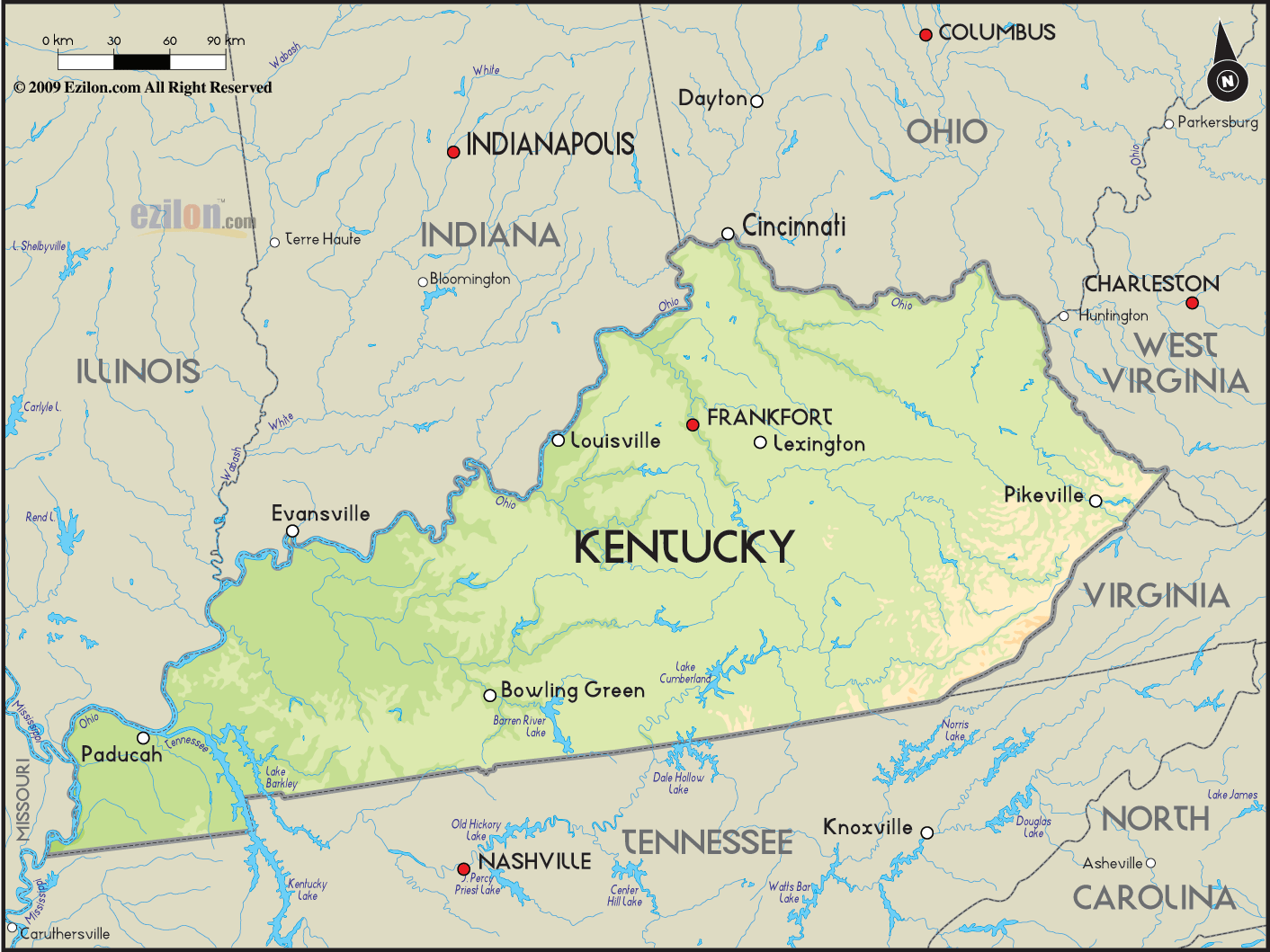The Kentucky Derby, a truly celebrated event, brings with it a whole lot of excitement, especially when folks consider the possibilities of a Kentucky Derby pay out. This grand race, you know, is more than just a contest of speed; it's a huge moment where many people get to feel that special thrill of participation, often by placing a small wager or two. For many, it's about the tradition, the fancy hats, and that particular mint julep, but a big part of the fun, for some, is certainly figuring out what might happen with the money side of things.
When the horses thunder down the track at Churchill Downs, a lot of eyes are not just on the finish line but also, in a way, on the potential for a winning ticket. It’s almost like a giant, shared guessing game, where everyone hopes their chosen horse comes through. That feeling of anticipation, waiting to see if your pick crosses first, or second, or even third, really adds to the overall experience of this famous race, doesn't it? It’s a very unique blend of sporting spectacle and, well, a chance to maybe earn a little something extra.
So, understanding how those winnings are figured out, how the Kentucky Derby pay out comes to be, is a rather important piece of the puzzle for anyone who wants to get involved beyond just watching. It’s not quite as simple as picking a winner and getting a set amount back; there’s a system at play that makes each pay out a bit different, depending on what everyone else is doing. Knowing a little about this system can certainly make the whole experience feel more interesting and, perhaps, a little less mysterious for those new to it all.
- Fuzzy Clog Slippers
- Guest Stars On Chicago Pd
- Carter Rhoad Natalie
- How Old Is Wilma Flintstone
- Raising Canes Ncaa Sponsorship
Table of Contents
- What's the Deal with Kentucky Derby Pay Out?
- How Do Different Wagers Affect Your Kentucky Derby Pay Out?
- Understanding the Money Side of the Kentucky Derby Pay Out
- What Influences a Kentucky Derby Pay Out?
- Getting Your Kentucky Derby Pay Out
- Are There Any Surprises with a Kentucky Derby Pay Out?
- The Excitement Around Kentucky Derby Pay Out
- Looking at the Kentucky Derby Pay Out Through Time
What's the Deal with Kentucky Derby Pay Out?
When you think about the Kentucky Derby pay out, it's really about a system that's a bit different from what you might see in other types of betting. This particular way of doing things is called pari-mutuel wagering. Basically, all the money that people put on a certain type of bet, like picking the winner, goes into one big pool. Then, after the race, a portion of that pool is taken out for the track and the state, and what’s left is then shared among everyone who picked correctly. It’s not like fixed odds where you know exactly what you’ll get before the race starts; the final amount for your Kentucky Derby pay out depends on how many other people also picked the same winning combination, which is kind of interesting, actually.
The odds you see for each horse, they are not really set in stone at the beginning. They shift and change right up until the very last moment before the race begins. This happens because the odds reflect how much money has been placed on each horse relative to the total amount in the pool. If a lot of people are putting their money on one particular horse, that horse's odds will get lower, meaning its potential Kentucky Derby pay out will be smaller if it wins. Conversely, if a horse doesn't have many people backing it, its odds will be higher, and a winning ticket on that horse could mean a much larger pay out. It's almost like a popularity contest, you know, where the crowd's choices shape the final rewards.
How Do Different Wagers Affect Your Kentucky Derby Pay Out?
When you're thinking about a Kentucky Derby pay out, the type of wager you choose really makes a difference in what you might receive. The simplest bets are "Win," "Place," and "Show." A "Win" bet, as you might guess, means your horse has to finish first for you to get any money back. A "Place" bet means your horse needs to finish either first or second. For a "Show" bet, your horse just needs to come in first, second, or third. Naturally, the easier it is for your horse to meet the condition, the smaller the Kentucky Derby pay out usually is. So, a "Win" bet generally offers the biggest return for a single horse, assuming it wins, of course.
- Jennifer Lopez White Outfit
- Honor Community Health Baldwin
- Garth Brooks Mom Song
- Cindy True Bush
- Gender Reveal Odeas
Then there are what people often call "exotic" bets, and these can really change the scale of a Kentucky Derby pay out. These involve picking multiple horses in a specific order or within a certain finishing range. For example, an "Exacta" means you pick the first two horses in their exact finishing order. A "Trifecta" means you pick the first three horses in their exact order. And a "Superfecta" takes it a step further, requiring you to pick the first four horses in their precise finishing positions. These bets are much harder to get right, naturally, but because of that, the potential Kentucky Derby pay out for hitting one of these can be quite substantial, often much larger than a simple "Win" bet, just because fewer people manage to guess correctly.
Understanding the Money Side of the Kentucky Derby Pay Out
Every dollar placed on the Kentucky Derby, whether it's on a win, place, or show bet, or one of the more complex ones, goes into a large collective fund. This is what we call the "total pool" for that particular type of wager. So, for example, all the money for "Win" bets goes into one pool, all the "Exacta" money into another, and so on. This big collection of funds is really what determines the eventual Kentucky Derby pay out. It’s not like the track is paying out of its own pocket; it's distributing the money that the bettors themselves have contributed, which is a pretty fair way to do things, you know.
From this total pool, a portion is always set aside before any winnings are distributed. This part is known as the "track take" or "takeout." This percentage, which varies a little depending on the type of bet and the state's regulations, covers the operational costs of the track, prize money for the horse owners, and taxes for the state. What's left after this "take" is removed is the money that gets divided among the winning ticket holders for their Kentucky Derby pay out. It's a system that, in a way, supports the entire racing industry, allowing these big events to happen year after year.
There's also a small detail called "breakage" that plays a role in the final Kentucky Derby pay out. Winnings are typically rounded down to the nearest dime or nickel, depending on the rules. So, if a payout calculates to, say, $5.78, it might be rounded down to $5.70 or $5.75. This small difference, the "breakage," also goes back to the track. It’s a very small amount per ticket, but across thousands of bets, it can add up. This practice is pretty standard in horse racing, and it's just one of those little things that contributes to how the overall Kentucky Derby pay out amounts are finalized.
What Influences a Kentucky Derby Pay Out?
When you think about the final Kentucky Derby pay out, several things can really make a difference. One of the biggest factors is whether the winning horse was a "favorite" or a "long shot." A favorite is a horse that many people believe will win, so a lot of money is placed on it. If a favorite does win, the pool of money for winners is divided among a larger number of people, which means each individual Kentucky Derby pay out will be smaller. On the other hand, a "long shot" is a horse that very few people expect to win. If a long shot somehow pulls off a victory, the winning pool is split among far fewer people, leading to a much larger individual pay out. It's kind of exciting, that possibility of a big win from an unexpected source, isn't it?
The total number of horses running in the race, often called the "field size," also has an effect on the Kentucky Derby pay out. The Derby, you know, often has a very full starting gate, with many horses competing. More horses generally mean more possible outcomes, which can make it harder to pick the exact winner or the correct order for exotic bets. When there are more horses, the odds for any single horse to win might be a little higher, just because there's more competition. This can sometimes lead to slightly larger payouts for correct predictions, especially for those more complicated bets like the Trifecta or Superfecta, as it’s simply more challenging to get it right with so many contenders.
Finally, the sheer volume of money placed on the race, the "betting volume," plays a huge part in the size of any Kentucky Derby pay out. The Derby draws a massive amount of attention and, as a result, a huge amount of money gets wagered. A larger total pool of money, even after the track's take, means there’s more to go around for the winners. So, while a favorite might still have a smaller individual pay out than a long shot, the overall scale of the Derby's betting means that even smaller payouts can still be quite respectable. It's really a testament to how popular this race is, that so much money flows through it, affecting everyone's potential winnings.
Getting Your Kentucky Derby Pay Out
Once the race is run and the results are made official, if you're lucky enough to have a winning ticket, getting your Kentucky Derby pay out is usually a straightforward process. You simply take your ticket to a designated window at the track. They will scan your ticket to confirm it's a winner and then give you your money. It's a pretty quick exchange, really, and for many, it’s the best part of the whole day. Just make sure to keep your ticket safe and sound, because without it, you can't claim your winnings, which is, you know, a very important detail.
For larger Kentucky Derby pay out amounts, there might be some additional steps involved, particularly concerning taxes. Winnings above a certain threshold, which can vary, are subject to federal and sometimes state income taxes. The track will often require you to fill out some paperwork, like a W-2G form, if your winnings meet these thresholds. This ensures that the proper taxes can be reported. It’s a good idea to be aware of these rules before you place a big bet, just so you’re prepared if you happen to hit it big. Nobody wants surprises when it comes to taxes, do they?
Are There Any Surprises with a Kentucky Derby Pay Out?
Sometimes, the Kentucky Derby pay out can come with a few unexpected twists. One of the most exciting, and perhaps surprising, things is when a long shot, a horse with very high odds, manages to win the race. When this happens, the pay out for a simple "Win" bet can be truly significant, sometimes hundreds of dollars for just a two-dollar wager. These unexpected outcomes are what keep many people coming back, hoping to pick that dark horse that no one else saw coming. It’s almost like finding a hidden treasure, that kind of surprise win.
Another moment that can affect the Kentucky Derby pay out, and certainly adds to the suspense, is a "photo finish." This happens when two or more horses cross the finish line so close together that it's impossible to tell who won without reviewing a photograph of the finish. During these moments, the official results and, by extension, the pay outs, are delayed while the judges carefully examine the photo. This waiting period can be quite nerve-wracking for those with tickets on the horses involved, but once the decision is made, the Kentucky Derby pay out for the winning horse or horses is then finalized and distributed.
The Excitement Around Kentucky Derby Pay Out
The thrill of a potential Kentucky Derby pay out is, in a way, a huge part of the event's appeal. It’s not just about the money, though that's certainly nice; it's about the feeling of making a good guess, of seeing your chosen horse perform well, and of being part of something so widely celebrated. When your horse crosses the finish line in a winning position, and you know you're holding a ticket that's now worth something, there's a definite rush of excitement that's hard to beat. It’s a moment of shared joy, really, among all the other winners.
The energy surrounding the Kentucky Derby pay out is also tied into the community experience of the race. People gather with friends and family, often placing bets together or cheering on their individual picks. The discussion about who might win, what the odds mean, and what the potential pay out could be, is a big part of the social fabric of the day. It creates a common topic of conversation and a shared sense of anticipation that, you know, makes the whole day feel even more special. It's more than just a bet; it's a collective experience.
Looking at the Kentucky Derby Pay Out Through Time
While the specific amounts for a Kentucky Derby pay out change every single year, depending on the horses, the betting patterns, and the total money wagered, the fundamental system has remained pretty consistent over a long period. The pari-mutuel way of doing things, where the winners share the pool, has been a cornerstone of horse racing for ages. This means that while the numbers might look different from one Derby to the next, the basic principles for how a Kentucky Derby pay out is determined are essentially the same, year in and year out. It’s a reliable way to manage the flow of money, which is good, you know.
The appeal of the Kentucky Derby pay out, and the race itself, has shown a remarkable consistency, too. People continue to be drawn to the event, eager to test their luck and knowledge against the field. The excitement of potentially picking a winner, or even a series of winners in an exotic bet, remains a powerful draw. This enduring interest means that the betting pools for the Derby continue to be quite large, which, in turn, helps ensure that even with many winners, the individual Kentucky Derby pay out can still be a satisfying amount. It’s a tradition that keeps on giving, in a way, to those who participate.
- Why Is Being Mary Jane Cancelled
- Olivier Richters Vs Alan Ritchson
- What Happened To Ray J
- Day Of The Dead Video For Middle School
- Boosted Pro Reviews Consumer Reports


